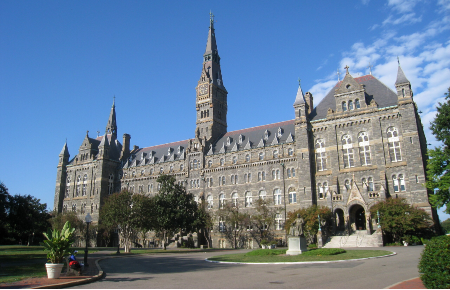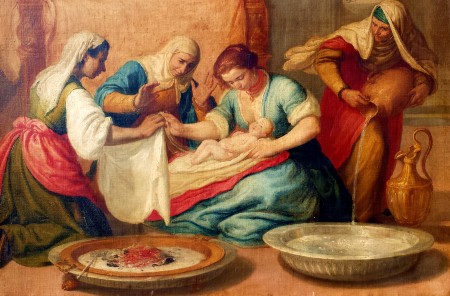 Hi readers, it seems you use Catholic Online a lot; that's great! It's a little awkward to ask, but we need your help. If you have already donated, we sincerely thank you. We're not salespeople, but we depend on donations averaging $14.76 and fewer than 1% of readers give. If you donate just $5.00, the price of your coffee, Catholic Online School could keep thriving. Thank you. Help Now >
Hi readers, it seems you use Catholic Online a lot; that's great! It's a little awkward to ask, but we need your help. If you have already donated, we sincerely thank you. We're not salespeople, but we depend on donations averaging $14.76 and fewer than 1% of readers give. If you donate just $5.00, the price of your coffee, Catholic Online School could keep thriving. Thank you. Help Now >
Pope Visits Monastery: Calls Whole Church to Silence, Prayer and the Living Waters
FREE Catholic Classes
The Holy Spirit is calling for a generation of contemplatives in every state in life and vocation in Christ. We tend to believe that the contemplative life is reserved for those who, by special vocation, can "leave" the world, such as contemplative monks and nuns. They are a true treasure and a prophetic sign of the life to come. However, all who are baptized into Christ are called to the same encounter with a different response.
Highlights
Catholic Online (https://www.catholic.org)
10/14/2011 (1 decade ago)
Published in Living Faith
Keywords: Prayer, spirituality, contemplation, Pope Benedict XVI, Carthusians, monastery, meditation, Deacon Keith Fournier
P>ROME, Italy (Catholic Online) - Pope Benedict XVI recently announced the theme for the World Communications Day in 2012, "Silence and Word: Path of Evangelization". In the announcement, the Pontifical Council for Social Communications explained:
"The extraordinarily varied nature of the contribution of modern communications to society highlights the need for a value which, on first consideration, might seem to stand in contradistinction to it. Silence, in fact, is the central theme for the next World Communications Day Message: 'Silence and Word: path of evangelization'.
"In the thought of Pope Benedict XVI, silence is not presented simply as an antidote to the constant and unstoppable flow of information that characterizes society today but rather as a factor that is necessary for its integration. Silence, precisely because it favors habits of discernment and reflection, can in fact be seen primarily as a means of welcoming the word.
"We ought not to think in terms of a dualism, but of the complementary nature of two elements which when they are held in balance serve to enrich the value of communication and which make it a key factor that can serve the new evangelization. It is clearly the desire of the Holy Father to associate the theme of the next World Communications Day with the celebration of the forthcoming Synod of Bishops which will have as its own theme: 'The New Evangelization for the Transmission of the Christian Faith'."
From the moment Pope Benedict XVI stepped onto the balcony of St Peters in April of 2005 our hearts were calmed by his deferential manner, his "littleness", his humility and his holiness. Those who knew him before his election to the Chair of Peter confirmed he was a towering intellect and a theologian of the highest order.
However, what soon became clear is that this Pope is a man of deep faith; the kind that gets into the marrow of the bones of a man who truly walks with God, making him strong, steady and unafraid of any adversary. This is precisely because he is a man of deep prayer, a contemplative.
Prayer is an ongoing dialogue of intimate communion with God. In an age of fast food, fast cars and fast internet, we seem to be running all the time. With our digital calendars, I-Pads and virtual connectivity we risk missing the most important meeting of all, our appointment with the Lord.
That is not to say that these technological advances have to be an impediment to the encounter. Rather, when we allow them to become our measuring stick for satisfaction in every area of our lives, we will look for quick prayer and quick "results", from what we believe are "our" efforts.
Prayer is not about results or even our efforts, but about love. In fact, it is really not about us at all, but about the "One" who hungers to be known and loved, the "Other", who calls us into the intimacy of communion with Himself in His Son and lives His life within us and through us by His Spirit. The Lord whom we seek is outside of time, having given time as a gift to those whom he now prepares for eternity. He dwells in the eternal now and invites us through prayer along a path to the fullness of life. That path passes through humility.
Preparing ourselves for the "possibility of a meeting" means learning to silence the clamor of the age, stop the ever accelerating pace of the futile quests that so often occupy our hearts, and live in the eternal now by surrendering ourselves - and even our best aspirations- to the One who created us -and now re-creates us- in His Son Jesus Christ. It is there, in the emptied place, in the stillness of the eternal now, where we prepare a room for the King of all hearts. And, in that encounter, we soon find the longing of our heart fulfilled.
The Holy Spirit is calling for a generation of contemplatives in every state in life and vocation in Christ. We tend to believe that the contemplative life is reserved for those who, by special vocation, can "leave" the world, such as contemplative monks and nuns. They are a true treasure and a prophetic sign of the life to come. However, all who are baptized into Christ are called to the same encounter with a different response.
Isaac of Ninevah was an early eighth century monk, Bishop and theologian. For centuries he was mostly revered in the Eastern Christian Church for his writings on prayer. In the last century the beauty of his insights on prayer are being embraced once again by both lungs, East and West, of the Church. He wrote these words in one of his many treatises on Prayer:
"When the Spirit dwells in a person, from the moment in which that person has become prayer, he never leaves him. For the Spirit himself never ceases to pray in him. Whether the person is asleep or awake, prayer never from then on departs from his soul. Whether he is eating or drinking or sleeping or whatever else he is doing, even in deepest sleep, the fragrance of prayer rises without effort in his heart. Prayer never again deserts him.
"At every moment of his life, even when it appears to stop, it is secretly at work in him continuously, one of the Fathers, the bearers of Christ, says that prayer is the silence of the pure. For their thoughts are divine motions. The movements of the heart and the intellect that have been purified are the voices full of sweetness with which such people never cease to sing in secret to the hidden God."
On Sunday, October 9, 2011, Pope Benedict XVI presided over Second Vespers with the Carthusian monks at Serra San Bruno. There, he shared beautiful insights into silence and prayer. His words brought me back to the days surrounding his election to the Chair of Peter.
Those who study the early days of Popes often watch the name they choose and the content of their first homily for clues to their pontificate. When Joseph Cardinal Ratzinger chose the name Benedict he sent a signal concerning the centrality of prayer, as well as the way he viewed the current age and the mission of the Church.
One of the young priests offering commentary during those historic days noted that then Joseph Cardinal Ratzinger visited Subiaco before all the events in Rome began. He prayed and rededicated himself to the work of the Church for the future. Interestingly, a short while later he was called to occupy the chair of Peter. He took the name Benedict.
Saint Benedict, born around 480 in Umbria, Italy, is the father of Western Monasticism. As a young man Benedict fled a decadent and declining Rome to give his life entirely to God. He went to Subiaco and the cave that became his dwelling is now a shrine called "Sacro Speco" (The Holy Cave). It is still a beautiful sanctuary for pilgrims. The Pope who took his name went to that same cave for prayer. He has not stopped showing us all the way of prayer ever since.
Included in the Pope's words to the monks on Sunday were these: "Dear brothers you have found the hidden treasure, the pearl of great value (cf. Mt 13:44-46); you have responded radically to Jesus' invitation: "If you would be perfect, go, sell what you possess and give to the poor, and you will have treasure in heaven; and come, follow me" (Mt 19:21). Every monastery - male or female - is an oasis in which the deep well, from which to draw "living water" to quench our deepest thirst, is constantly being dug with prayer and meditation. .
"Technical progress, markedly in the area of transport and communications, has made human life more comfortable but also more keyed up, at times even frantic. Cities are almost always noisy, silence is rarely to be found in them because there is always a lingering background noise, in some areas even at night. In the recent decades, moreover, the development of the media has spread and extended a phenomenon that had already been outlined in the 1960s: virtuality that risks getting the upper hand over reality. Unbeknown to them, people are increasingly becoming immersed in a virtual dimension because of the audiovisual messages that accompany their life from morning to night.
"The youngest, who were already born into this condition, seem to want to fill every empty moment with music and images, as for fear of feeling this very emptiness. This is a trend that has always existed, especially among the young and in the more developed urban contexts but today it has reached a level such as to give rise to talk about anthropological mutation. Some people are no longer capable of remaining for long periods in silence and solitude.
"The monk, in leaving all, "takes a risk", as it were: he exposes himself to solitude and silence in order to live on nothing but the essential, and precisely in living the essential he also finds a deep communion with his brethren, with every human being. Some might think that it would suffice to come here to take this "leap". But it is not like this. This vocation, like every vocation, finds an answer in an ongoing process, in the searching of a whole life. Indeed it is not enough to withdraw to a place such as this in order to learn to be in God's presence.
"Just as in marriage it is not enough to celebrate the Sacrament to become effectively one but it is necessary to let God's grace act and to walk together through the daily routine of conjugal life, so becoming monks requires time, practice and patience, "in a divine and persevering vigilance", as St Bruno said, they "await the return of their Lord so that they might be able to open the door for him as soon as he knocks" (Letter to Rudolph "the Green", n. 4)
"The beauty of every vocation in the Church consists precisely in this: giving God time to act with his Spirit and to one's own humanity to form itself, to grow in that special state of life according to the measure of the maturity of Christ."
Pope Benedict XVI Visited the Monastery of the Carthusian Monks to Teach the Whole World about Silence, Prayer and the Source of Living Waters. Let us all listen and learn.
---
'Help Give every Student and Teacher FREE resources for a world-class Moral Catholic Education'
Copyright 2021 - Distributed by Catholic Online
Join the Movement
When you sign up below, you don't just join an email list - you're joining an entire movement for Free world class Catholic education.
-

-
Mysteries of the Rosary
-
St. Faustina Kowalska
-
Litany of the Blessed Virgin Mary
-
Saint of the Day for Wednesday, Oct 4th, 2023
-
Popular Saints
-
St. Francis of Assisi
-
Bible
-
Female / Women Saints
-
7 Morning Prayers you need to get your day started with God
-
Litany of the Blessed Virgin Mary
Catholic Symbols Vandalized at Georgetown University, Being Investigated as Potential Hate Crimes
-

The Nativity of Mary: A Prayer for All Innocent Children
-

Eucharistic Unity: Embracing the International Eucharistic Congress in Quito
-
Do you know what really makes Mother Teresa so heroic?
-
Catholic Leaders Call for National Consecration of 2024 Election to the Blessed Virgin Mary
Daily Catholic
 Daily Readings for Saturday, September 07, 2024
Daily Readings for Saturday, September 07, 2024 St. Cloud: Saint of the Day for Saturday, September 07, 2024
St. Cloud: Saint of the Day for Saturday, September 07, 2024 Prayer in Time of Suffering: Prayer of the Day for Saturday, September 07, 2024
Prayer in Time of Suffering: Prayer of the Day for Saturday, September 07, 2024- Daily Readings for Friday, September 06, 2024
- St. Eleutherius: Saint of the Day for Friday, September 06, 2024
- Prayer for our Family #3 - Mother Teresa of Calcutta: Prayer of the Day for Friday, September 06, 2024
![]()
Copyright 2024 Catholic Online. All materials contained on this site, whether written, audible or visual are the exclusive property of Catholic Online and are protected under U.S. and International copyright laws, © Copyright 2024 Catholic Online. Any unauthorized use, without prior written consent of Catholic Online is strictly forbidden and prohibited.
Catholic Online is a Project of Your Catholic Voice Foundation, a Not-for-Profit Corporation. Your Catholic Voice Foundation has been granted a recognition of tax exemption under Section 501(c)(3) of the Internal Revenue Code. Federal Tax Identification Number: 81-0596847. Your gift is tax-deductible as allowed by law.









 Daily Readings for Saturday, September 07, 2024
Daily Readings for Saturday, September 07, 2024 St. Cloud: Saint of the Day for Saturday, September 07, 2024
St. Cloud: Saint of the Day for Saturday, September 07, 2024 Prayer in Time of Suffering: Prayer of the Day for Saturday, September 07, 2024
Prayer in Time of Suffering: Prayer of the Day for Saturday, September 07, 2024

